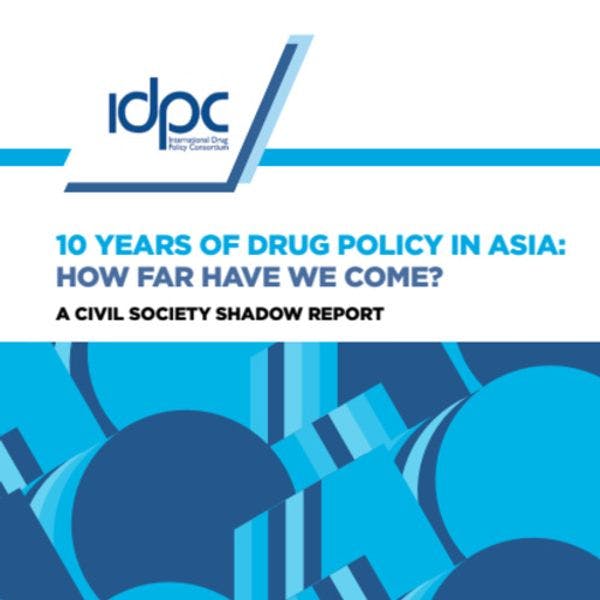10 ans de politiques des drogues en Asie : Jusqu’où sommes-nous allés ? – Un rapport parallèle de la société civile
L’IDPC évalue l’incidence des politiques des drogues mises en œuvre en Asie dans la décennie passée, en estimant les progrès réalisés en ce qui concerne les objectifs nationaux et régionaux et en concluant à la nécessité de se distancer de l’approche dommageable d’un « monde sans drogue ». Pour en savoir plus, en anglais, veuillez lire les informations ci-dessous.
IDPC previously published a civil society shadow report with a global focus. Taking stock: A decade of drug policy is available here.
Objective of the Shadow Report on Asia
Countries in Asia implement some of the harshest drug policies in the world. As United Nations (UN) member states are set to meet in March 2019 to take stock of progress made since 2009 and delineate the next phase for global drug policy, ‘10 Years of Drug Policy in Asia: How Far Have We Come?’ evaluates the impacts of drug policies in Asia over the past decade from a civil society perspective. The critical role of civil society in the design, implementation, monitoring and evaluation of drug policies is acknowledged in the 2009 Political Declaration and Plan of Action, as well as in the Outcome Document of the 2016 United Nations General Assembly Special Session (UNGASS) on drugs. Using data from the UN, academic literature and contributions from civil society, this report aims to provide a critical assessment of drug policy failures and successes across the region, with the aim of informing high-level discussions on the next decade of drug policy.
Recommendations
Far from realising the goal of a ‘drug-free’ region, the data presented here indicate that commitments made by countries in Asia to ‘eliminate or reduce significantly’ the illicit cultivation, production, trafficking, sale and consumption of drugs have not been achieved and, in most cases, have caused added health, social, public security and economic harms. To support a critical review of existing regional strategies and shape a more humane and evidence-based way forward for drug strategy in Asia post-2019, the International Drug Policy Consortium (IDPC) recommends that governments:
- Move away from ‘drug-free’ targets towards adoption of more meaningful goals and targets in line with the 2030 Agenda for Sustainable Development, the UNGASS 2016 Outcome Document, and international human rights commitments.
- Meaningfully reflect upon the impacts of drug policies on the UN goals of promoting health, human rights, development, peace and security, especially for those most marginalised and vulnerable.
- Acknowledge and discuss the realities of drug policies in the region, including reforms that have been implemented and their impacts, whether positive or negative in their achievement of the UN goals.
- Put the well-being of people and communities at the centre of drug strategies in the region, by seeking to improve their living conditions, address their vulnerabilities and protect their human rights, in line with the 2030 Agenda for Sustainable Development.
Téléchargements
Sujets
- Accès aux médicaments sous contrôle
- Moyens de subsistence alternatifs
- Cannabis & dérivés
- Centres de détention forcée
- Développement (ODD +)
- Réforme des lois sur les drogues
- Réduction des risques
- Droits humains
- Action policière
- Prisons et incarcération
- UNGASS de 2016
- Segment Ministériel de 2019
- Violence, action policière et sanctions
- Développement et environnement
- Décriminalisation, réglementation et réforme
- Santé et réduction des risques
- Droits humains et justice sociale
